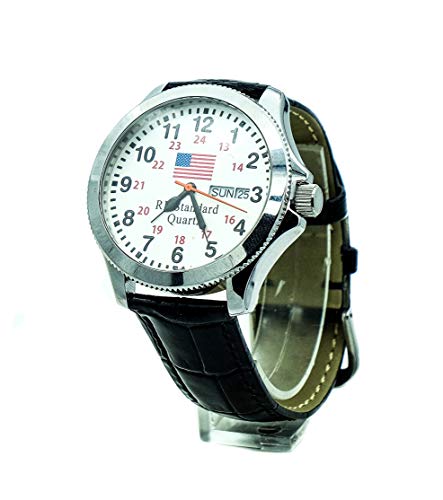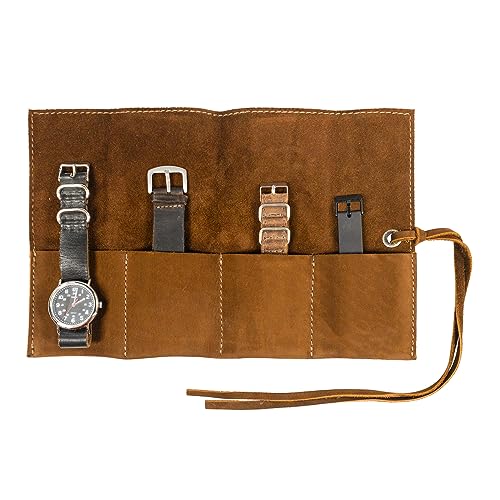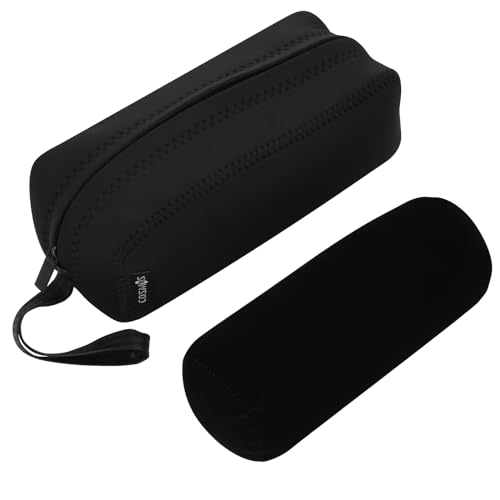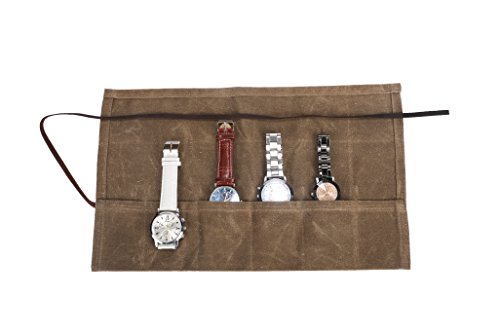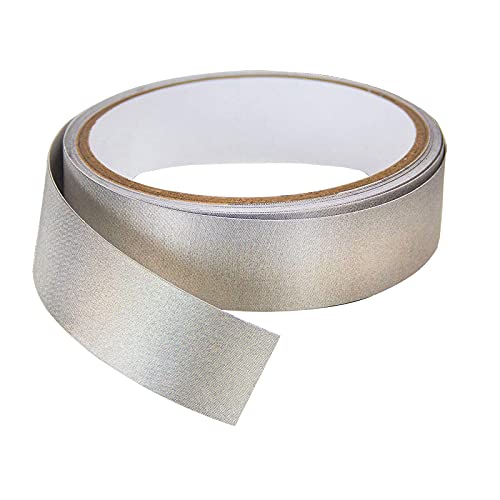This step-by-step guide provides instructions on how to store a railroad approved watch when not in use. By following these steps, you can ensure that your watch is properly stored to maintain its accuracy and reliability.
Top-rated timepieces for railroad professionals
Clean the watch
Before storing the watch, follow these steps to thoroughly clean it:
- Start by gathering the necessary materials: a soft cloth and a watch cleaning solution.
- Ensure the watch is not submerged in water and remove any straps or bands if possible.
- Take the soft cloth and gently wipe the surface of the watch to remove any dirt or dust.
- If there are stubborn stains or fingerprints, dampen the cloth with the watch cleaning solution and gently rub the affected areas.
- Make sure to avoid getting any cleaning solution on the watch dial or inside the watch mechanism.
- For metal bands or bracelets, use a toothbrush and the cleaning solution to scrub away any grime or residue.
- Rinse the bands or bracelets with warm water and dry them thoroughly with a clean towel.
- After cleaning, reattach the straps or bands to the watch.
- Finally, store the watch in a clean and dry place, away from direct sunlight and extreme temperatures.
For example, if your watch has a leather strap, you can use a separate leather cleaner or a mild soap solution to clean it. Gently apply the cleaner with a soft cloth, making sure not to saturate the leather, and then wipe off any residue. Allow the strap to air dry completely before reattaching it to the watch. The cleaning process may vary depending on the material of your watch, so always refer to the manufacturer’s instructions if available.
Protect from moisture
Moisture can cause serious damage to the internal components of your watch. To prevent this, it is important to take the necessary precautions. Firstly, ensure that you store your watch in a moisture-proof container. This will help create a barrier and protect it from any external moisture. Additionally, you can use silica gel packets in the storage area to absorb any existing moisture. These can be easily obtained and are highly effective in keeping the humidity levels low.
By placing your watch in a moisture-proof container and using silica gel packets, you will significantly reduce the risk of moisture damage. Remember to regularly check the condition of the container and replace the silica gel packets as needed. Taking these simple steps will help to extend the lifespan of your watch and maintain its optimal functionality.
Keep away from direct sunlight
- Store it in a cool, dark place: Find a safe spot indoors where your watch can rest undisturbed. A drawer, a jewelry box, or a dedicated watch case are all excellent choices. Make sure the chosen location is away from windows or any source of direct sunlight. This will shield your watch from harmful ultraviolet (UV) rays that can cause fading and deterioration.
- Avoid placing it on windowsills or countertops: It might be tempting to leave your watch by the window where it catches the sunlight beautifully, but don’t succumb to this temptation! Even a brief exposure to direct sunlight can lead to irreversible damage. Instead, place your watch in a location where sunlight is blocked, such as a drawer or a shelf.
- Consider utilizing a watch display case: If you’re an avid watch collector or have several timepieces, investing in a watch display case can be a wise choice. These cases often come with UV-blocking glass or materials that shield your watches from harmful sunlight. Not only will it protect your valuable timepieces, but it will also beautifully showcase your collection.
Remember, protecting your watch from direct sunlight should become a part of your daily routine. By following these simple steps, you’ll ensure that your watch maintains its original color, shine, and overall quality for years to come.
Store in a watch box or pouch
Store your watch in a dedicated watch box or a soft pouch to prevent scratches and damage. Place the watch carefully inside the provided compartments of the watch box, making sure it is fully protected and not in contact with any other items. If using a pouch, gently wrap the watch in a soft cloth before placing it inside. Ensure that the closure of the box or pouch is secured snugly to keep the watch in place. Place the box or pouch in a safe and dry location away from any potential hazards or exposure to dust. By following these instructions, you can keep your watch secure and free from any damage or dust accumulation.
Avoid magnetic fields
To avoid magnetic fields and maintain the accuracy of your railroad approved watch, follow these steps:
- Keep away from magnets: Avoid placing your watch near magnets, such as refrigerator magnets, magnetic closures, or magnetic jewelry. Magnetic fields can disrupt the delicate mechanisms of your watch.
- Stay clear of speakers: Keep your watch away from loudspeakers, particularly powerful ones. Speakers produce magnetic fields that can interfere with the precision of your watch.
- Keep distance from electronic devices: Electronic devices, such as smartphones, tablets, laptops, and even some kitchen appliances, emit magnetic fields. Avoid placing your watch near these devices to prevent any potential magnetic interference.
By following these simple guidelines, you can ensure that your railroad approved watch maintains its accuracy and precision over time.
Regularly wind or use a watch winder
Regularly winding or using a watch winder is crucial to maintain the optimal functioning of your self-winding railroad approved watch. To ensure its longevity and accuracy, follow these simple instructions. First, gently unscrew the crown located on the side of your watch to the winding position. Now, rotate the crown clockwise, making around 20 complete rotations or until you feel resistance. Take care not to overwind it, as this can damage the mechanism. Afterward, screw the crown back to its original position. If winding daily seems tedious, consider investing in a watch winder. This convenient device mimics the natural motion of your wrist, keeping your watch fully wound even when not in use. Simply place your watch inside the winder and set the appropriate rotation and rest intervals according to the manufacturer’s instructions. Keep in mind that consistency is key when using a watch winder, as irregular use may affect the accuracy of your timepiece. By regularly winding or using a watch winder, you can ensure your railroad approved self-winding watch remains in excellent working condition for years to come.
Final thoughts
In conclusion, proper storage of a railroad approved watch is essential to maintain its accuracy, protect it from damage, and extend its lifespan. By following the steps outlined in this blog post, you can ensure that your watch remains in optimal condition when not in use. Take care of your watch, and it will serve you well for years to come.
Necessary items
Maintenance Tips
The Citizen BM8180-54A: A Rare Timepiece ‘Railroad Approved
Instructions for Operating Railroad Approved Watches
- Make sure to read the user manual: Familiarize yourself with the specific features and functions of the railroad approved watch you have purchased. The user manual provides essential information on how to operate and use the watch properly
- Set the accurate time: As a beginner, it is crucial to ensure that the watch displays accurate time. Set the time following the instructions provided in the user manual or by using the appropriate settings or buttons on the watch
- Understand the significance of the “railroad approval” feature: Railroad approved watches are specifically designed to meet the strict accuracy and durability standards set by the railway industry. These watches are built to withstand extreme conditions and maintain precise timekeeping, making them reliable tools for railroad workers
- Utilize the chronograph (if available): Some railroad approved watches come with a chronograph feature, which allows you to measure elapsed time. Familiarize yourself with how to start, stop, and reset the chronograph function to accurately track time intervals or events
- Regularly maintain and service the watch: To ensure optimal performance, it is advisable to adhere to the maintenance and servicing schedule recommended by the watch manufacturer. This may include periodic check-ups, battery replacements, or adjustments to maintain accurate timekeeping. Following these guidelines will help to extend the longevity of your railroad approved watch
Answers to your frequently asked questions about railroad approved watches
What are the benefits of using a railroad approved watch in a railway setting?
Using a railroad approved watch in a railway setting offers several benefits.
Firstly, a railroad approved watch ensures accurate timekeeping, which is of utmost importance in the railway industry. Precise timekeeping is crucial for train schedules, ensuring trains arrive and depart on time and minimizing delays. By using a watch that meets railroad standards, the likelihood of timing errors is significantly reduced, leading to increased efficiency and operational reliability.
Secondly, railroad approved watches are designed to withstand the demanding conditions of railway work. They are often built with durable materials, such as stainless steel or titanium, making them resistant to impact, vibrations, and other environmental factors. These watches are also typically water-resistant, protecting them from moisture exposure as workers may come into contact with rain or other wet conditions. The robust construction and water resistance ensure that the watch remains functional in various challenging railway environments.
Thirdly, railroad approved watches often incorporate specific features useful in railway settings. For instance, they may include large, highly visible dials or luminescent hands and markers that enable easy reading even in low-light or night conditions. Some watches may have additional functionalities like chronographs or timers, which can aid railway employees in timing specific tasks or measuring intervals accurately.
Furthermore, by using a railroad approved watch, railway personnel demonstrate their commitment to safety. These watches undergo rigorous testing and certification processes to comply with industry regulations, ensuring they meet standards for accuracy and reliability. Wearing a railroad approved watch not only signifies adherence to safety protocols but also promotes a professional image and reinforces the importance of punctuality and precision in rail operations.
In summary, the benefits of using a railroad approved watch in a railway setting include accurate timekeeping, durability, resistance to environmental factors, specific features for railway work, and demonstration of commitment to safety. These watches contribute to the smooth functioning of railway operations, enhancing efficiency, reliability, and overall performance.

